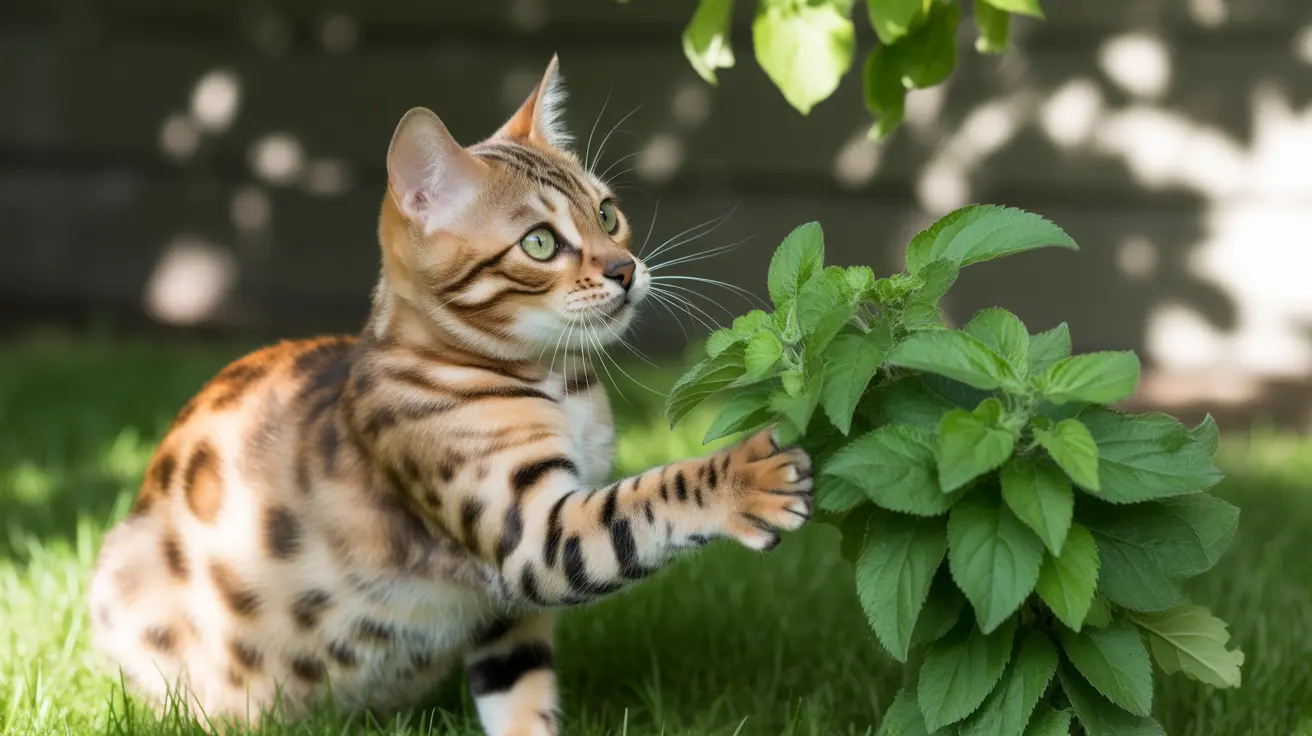Introduction
Understanding which herbs are safe for cats is crucial for pet owners looking to enrich their feline companions' lives naturally. Whether you're considering growing a cat-friendly herb garden or want to offer your pet some botanical enrichment, knowing which herbs are safe and how to use them properly can make a significant difference in your cat's wellbeing.
In this comprehensive guide, we'll explore veterinarian-approved herbs that are safe for cats, their potential benefits, and important safety considerations to keep in mind. From the well-known catnip to lesser-known options like valerian root, we'll cover everything you need to know about introducing herbs to your feline friend's environment.
Common Safe Herbs for Cats
Catnip and Its Benefits
Catnip (Nepeta cataria) stands as the most well-known and beloved herb among cats. This natural stimulant triggers endorphin release and activates the opioid reward system, creating a euphoric effect that typically lasts 10-15 minutes. Beyond recreation, catnip offers stress relief benefits and even acts as a natural mosquito repellent when cats rub against the plant.
Valerian Root: The Alternative Stimulant
Valerian root serves as an excellent alternative for cats who don't respond to catnip. While it has a strong odor that humans might find unpleasant, many cats find it highly attractive. This herb can help stimulate activity in sedentary cats and is often included in feline calming formulas.
Medicinal Herbs with Therapeutic Properties
Supporting Immune Health
Echinacea and calendula are two herbs that can support feline immune health when used appropriately. Echinacea is particularly beneficial for cats with recurrent upper respiratory issues, while calendula offers soothing properties for skin conditions.
Digestive Support Options
Marshmallow root and dandelion are gentle herbs that can aid in digestive health. Marshmallow root acts as a demulcent for the gastrointestinal tract, while dandelion supports digestion and acts as a mild diuretic.
Safe Culinary Herbs for Cats
Several common kitchen herbs are safe for cats to nibble in small quantities:
- Basil
- Parsley
- Thyme
- Sage
- Cilantro
- Dill
- Rosemary
These herbs should be offered fresh and in moderation, as overconsumption can lead to digestive upset.
Essential Safety Considerations
Forms and Dosage
While many herbs are safe in their natural form, essential oils derived from these same plants can be toxic to cats. Cats lack certain liver enzymes needed to process concentrated oils, making even oils from "safe" herbs potentially dangerous. Always stick to fresh or dried herb forms unless specifically directed by a veterinarian.
Growing a Cat-Safe Herb Garden
When creating a cat-friendly herb garden, use pesticide-free soil and plants, and keep toxic species completely separate. Consider growing cat grass alongside safe herbs to provide additional enrichment and aid in hairball prevention.
Frequently Asked Questions
What are the safest herbs I can give my cat for enrichment and health benefits?
The safest herbs for cats include catnip, valerian root, cat grass, and common culinary herbs like basil and thyme in small amounts. Always introduce new herbs gradually and monitor your cat's reaction.
How should I introduce herbs like catnip or valerian to my cat without causing adverse reactions?
Start with small amounts and observe your cat's response. Place a small amount in a toy or scattered on a scratch pad. Watch for any signs of digestive upset or unusual behavior and discontinue use if adverse reactions occur.
Are culinary herbs like basil, rosemary, and parsley safe for cats to nibble on?
Yes, these common kitchen herbs are generally safe for cats in small amounts. Offer fresh, clean leaves occasionally as treats, but avoid seasoned or prepared herbs with additional ingredients.
Why should I avoid essential oils derived from herbs even if the plants themselves are safe for cats?
Cats lack certain liver enzymes necessary to process concentrated essential oils safely. Even oils from safe herbs can be toxic to cats due to their concentrated nature and cats' unique metabolism.
Which common garden herbs are toxic to cats and must be avoided in a cat-friendly garden?
Avoid planting onions, garlic, chives, marijuana, pennyroyal, tarragon, and oregano. These herbs can cause various adverse reactions ranging from mild digestive upset to severe toxicity.
Conclusion
While many herbs are safe for cats and can provide enrichment and health benefits, it's essential to introduce them carefully and always consult with your veterinarian before starting any herbal supplementation. Focus on fresh herbs in small quantities, avoid essential oils, and always monitor your cat's response to new botanical introductions.






